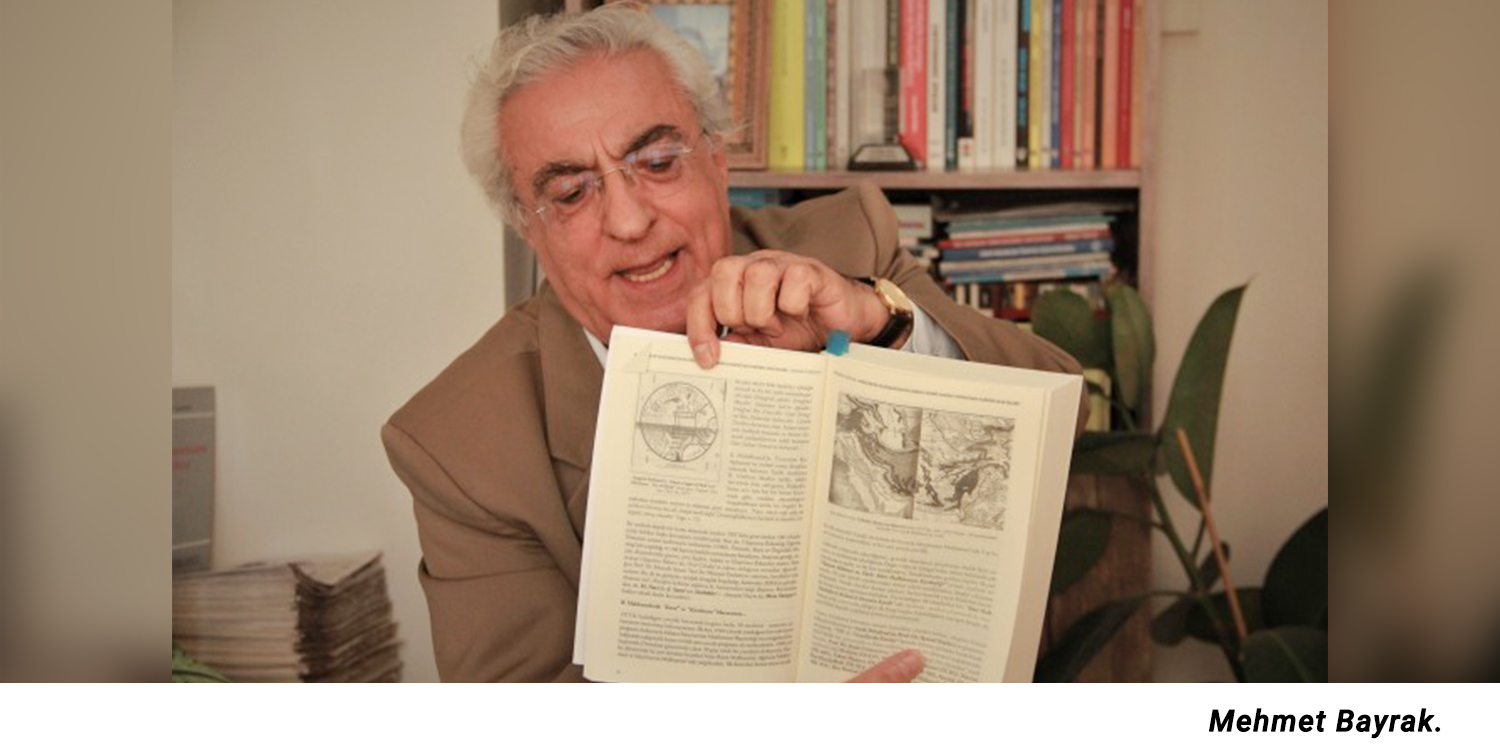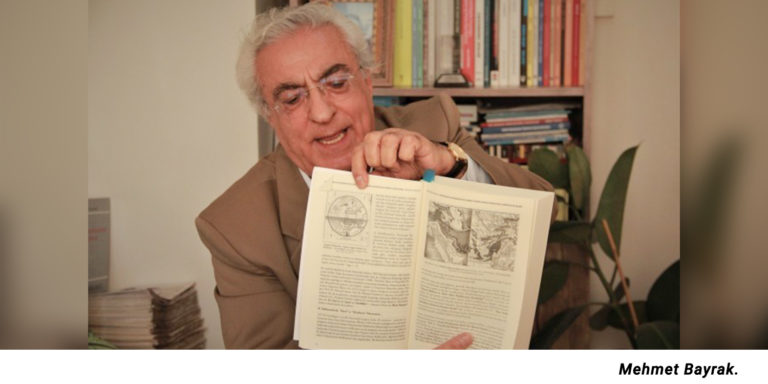The use of the word “Kurdistan” has once again become a matter of heated discussion in Turkey as the Kurdish people are increasingly targeted by leading Turkish political figures and the Turkish legal system.
Most recently after a Kurdish shop owner, Cemil Taşkesen, used the word “Kurdistan”, saying “We are Kurds, this is Kurdistan. Our identity has always been denied,” while in conversation with the visiting Iyi Party leader Meral Akşener. Taşkesen was even detained on charges of “propaganda”, subsequently being released.
Amidst the debates revolving around Taşkesen’s Kurdistan rhetoric, another Kurdish citizen and academic Hifzullah Kutum was arrested last week, again on charges of propaganda, for using a similar term “Bijî Kurdistan” (meaning “Long Live Kurdistan” in Kurdish).

Mehmet Bayrak, a prominent Kurdish historian, who has focussed his research on Kurdology and Turkology, explained his views to MA regarding the “Kurdistan” debate in Turkey.
Sharing his memories of the 1980s and 1990s, Bayrak compared and contrasted the repression experienced by Kurds today with experiences of the past.
He said that in 1989 when he was editor-in-chief of the magazine “Özgür Gelecek” (“Free Future”), also writing for it, a total of 32 legal cases were initiated against the magazine, for each sentence that included either the term “Kurdish people,” or “Kurdistan”. As a result of this relentless judicial pressure, the magazine was finally shut down a year later, having only published eight issues.
In 1991 Bayrak authored the first book on Kurdish folkloric songs in Turkey, for which he was prosecuted and brought to trial.
By 1993, a total of six cases had been initiated against Bayrak for his books on Kurdish history and culture, in all of which he was later acquitted.
“Kurds are among the most ancient peoples of these lands. In fact, even in texts written before Christ, for instance Xenophon, in his book entitled Anabasis, refers to the Kurds under the name of Carduchoi, and he refers to the ancient lands of the Kurds as Corduene,” he said, adding that despite all the historical documents, extensive evidence and facts, the Kurdish identity and Kurdistan continues to be denied.
Quoting from a legendary Kurdish intellectual, Musa Anter, known affectionately by the Kurds as Apê Musa, Bayrak said the Kurds have been both “defendants in and witnesses to Turkey’s history, for at least the last 50 years.”
“It is shameful that people are still being arrested and punished for using this ancient name. Before society was completely Turkified and Islamised the Kurdish land was called Kurdistan,” he said.
He stressed that historical facts cannot be changed regardless of the repression.
“In all historical sources of the Ottoman period, whether local or Western, the term Kurdistan is seen as the name of a particular land. And the Kurdistan of today is defined as North Kurdistan, South Kurdistan, East Kurdistan, West Kurdistan and Central Kurdistan.”
In his book entitled, “The visual history of the Kurds and Kurdistan”, Bayrak lists the names of around 250 Western explorers, who have mentioned the Kurds and Kurdistan in their travel notes.
“Other than these names, there are many Western sources citing the lands of Kurds. Kurdistan has been in existence for 4,000 years up until today, under various names.”
Bayrak explained that the Treaty of Lausanne formalised the division of the ancient lands of Kurdistan between four countries.
“Kurdistan and the Kurdish people were divided into two halves by the Treaty of Qasr-e Shirin (also known as Treaty of Zuhab), and this caused public outrage then. But with the Treaty of Lausanne, the lands of Kurdistan were de facto and officially divided into four,” he said.
“Actually, it was the Kurds who paid the price for the Treaty of Lausanne, we should never forget that.”
Bayrak pointed out the differences between what he has discovered in official documents and the way the state authorities act in real life regarding the use of the word “Kurdistan”.
“Let me tell you something as an author who has published many classified documents on Kurds and the Kurdish national movement,” he concluded, “In the classified documents, the term Kurdistan is used explicitly. The political mind of the state outwardly denies this truth whilst secretly in the background it fully recognises and acknowledges it.”
- ربودن نمایندگی سیاسی کوردها برای پنهان کردن برنامههای ضد اسرائیلی خود - 04/16/2025
- پارسیان هند؛ پیونددهندگان میراث ایران(فارس) و مدرنیته یا همراهان استعمار؟ - 04/13/2025
- نامە ٨٠٠ نفر - 04/08/2025
